The Honor and Challenge of Being Entrusted with Others’ Dreams: Kay Wallace, National Black MBA Association
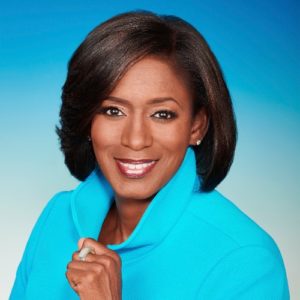
“Even if you’re relevant and have a great relationship, you must communicate the impact,” said Kay Wallace, president and CEO of The National Black MBA Association®. As the newest executive of the 14,000-member association, she’s working hard to help a diverse group of business professionals achieve their career aspirations through chapter support, business case competitions and the premier conference and career expo for black professionals. “It’s an honor and a challenge to be in the position of being entrusted with people’s dream,” she said.
NBMBAA® is celebrating its 50th anniversary, and Kay generously took time to chat with Association Adviser about what she’s doing to help NBMBAA® establish a reputation as an organization that has steadfastly supported a diverse group of professionals, and how she is laying foundations to continue to transform careers for another 50 years.
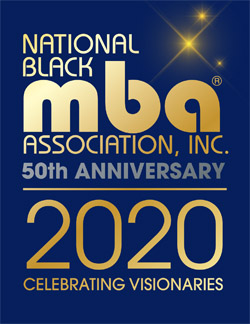
AA: You’ve been president of The National Black MBA Association® for just six months. How has the transition been?
KW: I love this job.
AA: You also run a consulting firm and have been a managing director for a community-based organization in Atlanta. Those are much smaller organizations than NBMBAA®. What similarities do you see?
KW: I was the managing director of the Georgia Research Alliance, an economic development resource alliance that is now 27 years old. I managed the startup of that alliance between public and private universities in Georgia, state and federal agencies and private corporations. The goal was to create and retain jobs in local communities, and enhance those jobs by investing in eminent scholars from around the nation (and the world) who were best in their field. The Georgia Research Alliance helped those scholars work collaboratively across universities with an emphasis on economic outcomes. A lot of scholarly research is research that doesn’t necessarily point to applications. Here we took issues from business and brought the educational institutions in to solve those problems.
For example, many carpet manufacturers in north Georgia had indoor air quality issues at their plants. For the sake of worker safety, they were facing the possibility of slowing or even closing down portions of their production. That would have resulted in a negative impact on those communities. So, working with academics at the University of Georgia, Georgia Tech,Clark Atlanta University, and Emory, our collaboration worked on solutions that would improve air quality while allowing production to continue. Associations are the same: We take issues facing our members and work collaboratively to find solutions.
Through this alliance as well as through a position at McKinsey, I learned how to work across entities and how to convince researchers to think about the economic impact of business activities. When you convince a researcher to apply their knowledge to affect a particular outcome that’s no small task, and it was not necessarily a cakewalk. But learning how to bring people together to solve problems was invaluable.
So my work back then had a different focus than Black MBA, but the ability to name what are you trying to change or affect, and then assessing what needs to be done to make that happen, carries over to association work just the same.
AA: The National Black MBA Association® has around 14,000 members. How do you keep individual members interested in their association membership?
KW: By staying true to our mission of leading in the creation of educational, wealth building, and growth opportunities for black leaders throughout their careers as professionals, entrepreneurs and students. Staying on-mission makes it easy for people to understand what we do and what the value of membership is. Our members stay with us because membership is an opportunity to develop themselves and their business, network and socialize with people who are of a like mind and experience. You don’t have to have an MBA! You can be a business professional, an undergraduate or graduate student, or you can have a graduate degree in another profession.
We also support entrepreneurs. We host an annual Scale-Up Pitch Challenge to recognize and fund entrepreneurs who have started a business but need help scaling up their operations. The competition includes development workshops at the regional level (Atlanta, Austin, Texas and Chicago) where our member business owners can attend development sessions about access to capital, how to build a team, and how to scale their operations. The pitch competition begins at this regional level then feeds into semi-finals and finals at our annual conference. The cash prizes are funded by our corporate sponsor, FedEx.
AA: What’s the track record of businesses that have won the scale-up competition?
KW: All are still in operation! Our 39 chapters continue supporting these entrepreneurs throughout the year via workshops and speakers.
AA: How do you find out what member needs are?
KW: We employ focus groups at conference, surveys with sponsors, members and chapter leadership, and post-event surveys. Our goal is to establish a cadence of check-ins when we regularly ask members, Is a particular benefit or event of value? What do you need? What would you like to see more of? We collect net promoter scores so we can have a sense for how our members perceive the value of their membership.
Part of our programming is to look down the road and anticipate what kind of skills, experiences and training people will need later. How can we help them have the right mindset and competencies? I’m talking about both generalist and specific training. We offer certifications at our annual conference and at chapter-based events. Other times we focus on a particular topic, related to current events or current social issues that have a business impact. Business leaders come because they want to hear from others about a particular issue.
We know that a large part of our membership value for some members derives from attending our annual conference.
AA: Tell us about NBMBAA’s Annual Conference.
KW: One of our core offerings is an Annual Conference and Career Exposition that focuses on professional development as well as career opportunities. We host the largest career expo in the nation dedicated to sourcing diverse talent across diverse industries. More than 170 companies exhibit at our career expo, and about 10,000 people attend, from undergrads looking for internships to current MBA students trying to land their first job, and all the way up to experienced professionals looking for promotions or their next opportunity.
For attendees, conference is about career development and securing a job. Attendees usually fall into two groups: those who are happy where they work, but are always looking for an opportunity to spend time with like-minded people interested in business and professional ways of thinking, and those who want to ready themselves for their next promotion, learn about the next customer base they want to serve, and generally better position themselves for the next phase of their career. We focus primarily on African-Americans, but if you come to our conference you’ll see our conference attendees are diverse because the value and impact they get by being present is so great.
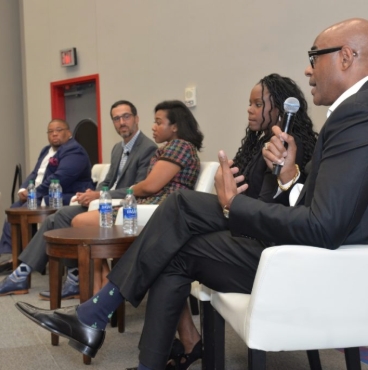
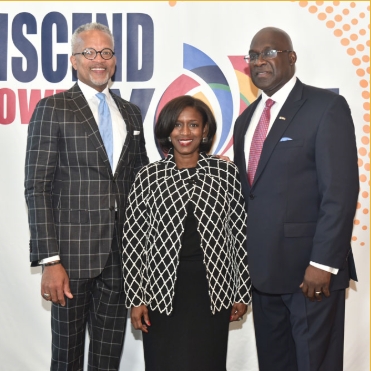
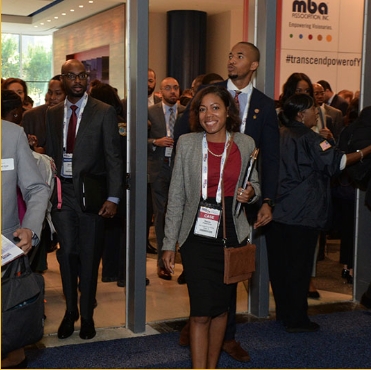
For companies, conference is all about finding talent. If I’m a division manager or branch manager, engaging with Black MBA means I can source talent from my region and help potential employees find a career opportunity right in our shared backyard? Companies might go to see how another company is engaging with a body of consumers to get ideas on how to handle potential hiring or employment situations, or to observe competitors in general. And they might go for personal or professional development themselves.
We amplify all of those reasons and let people know the successes and impact our members are having as a result of their association affiliation and conference attendance. Here’s one example: We work with about half of the Fortune 50 list. They support our chapters. Students often try to set up interviews with them as their main conference objective. We do workshops with those students about how to prep for conference at their chapter level and at a national level. One student who registered for conference, attended our workshops and interviewed with her desired companies got offers for all four internship she interviewed for! We’re going to publish her story using our website and social media as well as traditional forms of media. The message will be, “This is the value and impact of a Black MBA membership, so come join us.” You can sit and apply using Indeed.com, or you can join us and get a job, indeed!
AA: Why is there a need for an association like Black MBA?
KW: In the 1970s when the National Black MBA Association originated, there were very few black managers in corporate America. The students formed supportive communities and connections in school, but after graduation they would be dispersed among a wider set of companies. Blacks usually didn’t see other blacks in management positions, so they couldn’t learn from people who had the same formative experiences as them about how to continue developing as a professional. In 1970, about 75 graduate business school students from historically black institutions as well as majority white schools were invited to come to the University of Chicago and talk about the issues they would face in the workplace – lack of relatable mentors, discrimination, and so on. They decided they were going to support each other through networking, socializing, and formal professional development activities. The first annual conference and exposition took place in Detroit in 1979. The National Black MBA Association® quickly became so well-known for its conference programming that companies would send their employees to our conference to get specific training.
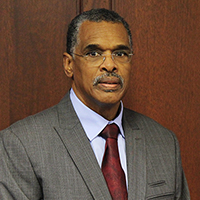
What is moving to me was not only reading the history of our organization but meeting one of the people, Dr. Alexander Gabbin, who was involved in the creation of the association. Meeting with him and seeing documentation from the origins of the association, hearing about the career situations of those founding members, their issues, and how they planned to address those issues for themselves and others who would come later was incredible! They were students and they were visionaries. Fifty years later the need to address some of those same issues is still here. Some of the barriers that were there 50 years ago are still present. But if we do it right, 50 years later this organization will exist because of a desire to serve, instead of a need to overcome.
AA: Black MBA is in the middle of a five-year strategic plan focused on delivering value through five elements. How is progress on strengthening these elements?
KW: It’s going well. Everything we are doing strategically is through the lens of our 5R Framework: Relevance, Relationships, Reputation, Revenue and Results. Everything we do – events, programs, marketing – must relate to one or more of these areas because these are the factors that impact how well our members, chapters, partners and our communities benefit. This framework helps us gauge the value we provide, the reputation we’re building, and the growth we can expect to see as a result of anything we do. And it reminds us to rely on metrics when measuring outcomes and the potential for program sustainability.
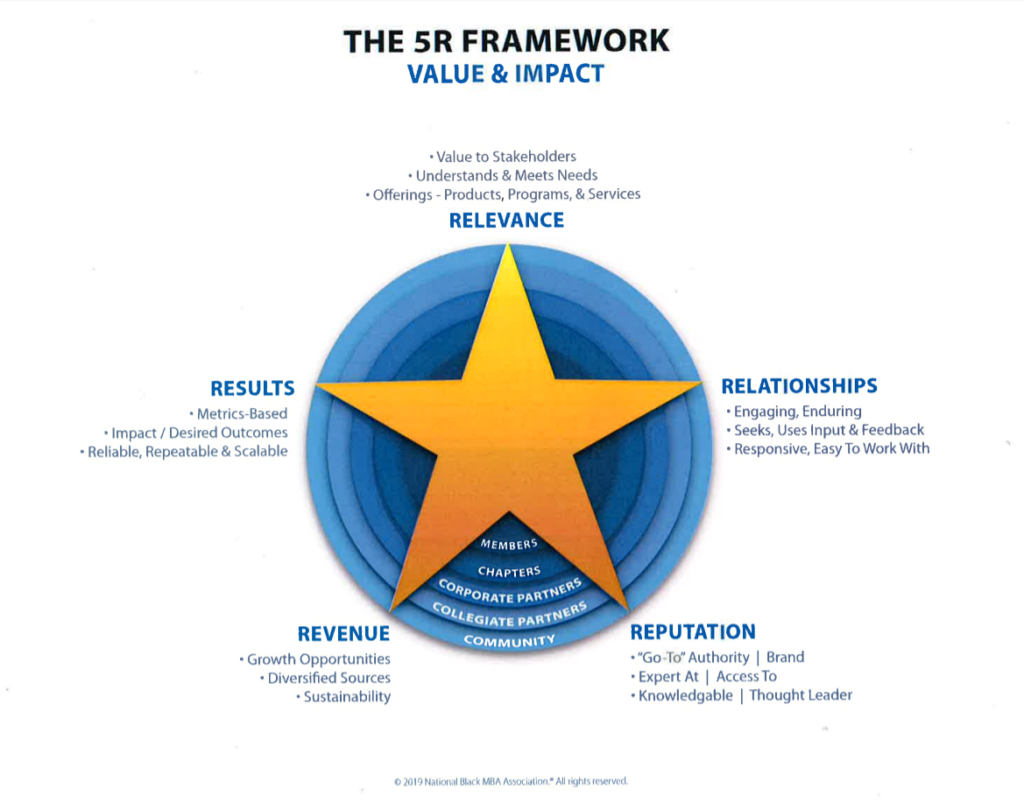
AA: What are the most important decisions you make as president and CEO of NBMBAA®?
KW: The most important decisions are around people. When you’re a lean organization, you have to have the right team in place to lead the charge. Really, it doesn’t matter what size your team is. You must have alignment. The ability to get everyone on the same page and have a clear set of understandings about what you’re doing and why, is paramount. People selection is critically important. So is revenue. Raise it, and then spend it wisely.
AA: How does Black MBA plan to grow financially?
KW: We are diversifying revenue to make sure we’re consistently delivering impact and value to our partners and sponsors. We want them to come back. We want to have a relationship where we can deliver the value and communicate it – and communicate it some more. And when sponsor needs are not being met, we want them to be open enough with us to tell us how we can fix it. On the expense side, we’re making sure we’re spending money on the right things and maximizing our investments.
Another revenue opportunity we’re exploring is experiential marketing on behalf of companies interested in our customer base. Given that we have 14,000 members who are of a certain education level and generally have a certain potential earning level, this could be a lucrative area for the association.
Alongside our new cadence for engaging members, we’re embarking on that same cadence of communicating consistently with our partners. When our sponsors or partners engage with us, there could be multiple reasons for partnering with us. They want access to our members for talent and for feedback about their products and services. Companies are realizing this is one of our major capabilities. They want to be a part of Black MBA in additional, non-conference-centric ways. The geographic presence of our 39 chapters allows us to do that. We have a smaller base than in the past, but we’re looking at where expansion makes sense so we can better serve members, potential members, and companies. The other thing we’re doing is strengthening chapters to make them as effective and efficient as possible. The ability to provide consulting services to them based on know-how is our mission and a focus of future investment.
As we listen to our partners and strive to provide those talent recruitment and development opportunities they want, we also try to communicate back to them the value they received. For example, if you come to our conference and hire 10 interns, but also identify 25 more people your company would hire if you had open positions for everyone, we want to have that conversation about the value you saw. We make a point of telling our partners’ stories about hiring success through our association, and that we try to spread that level of success to others. We want multi-year contracts and sponsorships. When these companies walk into our conference space and see the presence of hundreds of name-brand organizations – peers, competitors, or companies they strive to emulate – it doesn’t take long for them to realize they made the right decision to partner with the National Black MBA Association®.
It’s a challenge to post members’ and companies’ stories and have it feel authentic, however. We want to be the platform upon which our members’ success stories are shared but we also want the distribution of these stories to be organic. It must be organic for individuals’ stories to feel authentic.
AA: You started your career with a degree in chemical engineering and an MBA from Harvard. You’ve worked for some large companies such as Dow Chemical and McKinsey. What was the appeal of working in associations?
KW: Between for-profit and non-profit organizations, the issues are the same but tend to be addressed differently.
At the National Black MBA Association®, we serve four generations of members. We need to know how to segment our membership and communicate with them. What is important to each generation of professionals? How do you speak the same message to people from four different generations? This is no different from customer segmentation.
Often when you are in non-profit, people aren’t using evidence-based, effective models or ways of doing business. But an association is still a business. When you peel it all away, you must nurture your team and know who you’re serving. I came into this space because the ability to help others amplify their voice and achieve their hopes and dreams is exciting to me. To help people get to the place to make the best decisions for them invigorates me. When I was introduced to the membership during NBMBAA’s annual conference in Houston last year, I said that it’s easier to be entrusted with someone’s money than entrusted with their hopes and dreams. Because dreams hold more weight. It’s an honor to be in the position of being entrusted with people’s dreams as much as it will be a challenge.
AA: How often do you feel challenged in your current role?
KW: Daily! But in the most positive ways. I’ve never worked in an environment that was not soul-feeding. The companies I’ve worked for have offered hard, challenging and innovative work but always an arc toward good in that work. I’ve had great sponsors and mentors, the opportunity to give back while I was working, and that makes up for the harder challenges.
Just last week I was in Chicago, and while boarding a plane to come back to our headquarters in Atlanta, a gentleman in line spotted my National Black MBA backpack. He has been a member for a long time but he was still really happy to see the presence of the association. When the plane landed, I waited until he and his father got off the plane to give them an NBMBAA® pin and my card. He told me his story of graduating from the University of Chicago and how he now lives in California. So many people have been a part of the organization over the years, people who used to be engaged, but when they see our name, they tell us positive stories such as how they got their first job by coming to conference. You get excited all over again when you know you’re part of an organization that has helped fulfill the hopes and dreams of others.
AA: What keeps you up at night?
KW: The ability to go fast and to deliver quickly. I’m relatively new to this organization, so I’m still learning, transforming into the role, and developing relationships. There is more to do than I can physically do, but I am developing a great team and that’s why building a high-performing team is paramount.
I strive to have the National Black MBA Association® let no dream be deferred. When you’re a student trying to come to our conference, that’s a huge investment. We want to do everything possible to help that student attend and achieve their goals related to attending. Which leads us to ask, how can we help them prepare?
While our conference is my primary focus, my mandate in this position is diversifying beyond the conference and developing other revenue sources. Some initial ideas are doing more in-market activities such as trainings, professional development workshops, and ways of accelerating d black career mobility knowledge to corporations seeking that type of training for their employees. If we can deliver that in local markets rather than making them come to us, that’s a cost benefit for both the National Black MBA Association® and the individuals going through the training. We need to adapt what we do best to different places and spaces rather than just a conference time. As part of this effort we’re looking for help from people who partner with us as well as those who haven’t yet. These smaller, geographically distributed workshops would expand our revenue base.
But money isn’t everything; relationships are. Our phrase for 2020 is “Let’s grow.” Great relationships are our wealth. If we have these great relationships, wealth will grow. We’re working on the revenue side, but relationships allow us to be a part of people’s lives and work. We have experienced professionals and people, and serving their career needs is how we’re going to grow.

